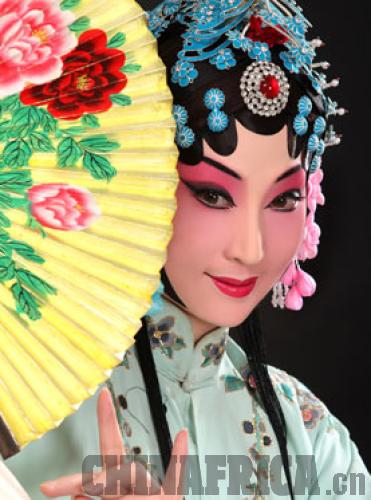|
|

|
|
COMEBACK: Kunqu's retro feel is now in vogue |
When the subject of Chinese opera comes up, Peking Opera is the first form of this ancient art that comes to mind. It has won fame both in China and worldwide due to its refined singing and stage dialogue, superb acrobatic skills, creative facial make-up, and magnificent costumes. Being the quintessence of Chinese opera, Peking Opera incorporates many characteristics of Chinese local opera, including Kunqu Opera, the mother of Chinese opera.
One of the oldest forms of opera still existing in China, Kunqu has already had a history of 600 years. In 2001, the United Nations Educational, Scientific and Cultural Organization (UNESCO) proclaimed Kunqu a Masterpiece of the Oral and Intangible Heritage of Humanity, making it the first Chinese art form to receive this honor.
Kunqu can be traced back to the 1300s and 1400s in Kunshan, near the city of Suzhou, east China's Jiangsu Province. The rich culture, leisurely lifestyle and melodious dialect of its birthplace are all well elaborated in this artistic form.
During the 200 years after the 1500s, Kunqu reached its zenith. It was widely spread across the nation and profoundly influenced many other Chinese local operas, including Peking Opera. Nowadays, some repertoires in Peking Opera derived from Kunqu are still performed.
Acknowledged as an elegant opera in terms of music, arias, recitation and the performers' movement, Kunqu has enriched Chinese opera. To some extent, its development is the development of Chinese opera as a whole, which has led to it being described as the mother of all Chinese operas.
Peking Opera reflects more about the cultural traditions in north China, while Kunqu Opera displays the aesthetic outlook in south China. The opera distinguishes itself with the virtuosity of vivid character expression and the performers' movement, with the accompaniment of tunes, the soft arias and the graceful movement of the performers combined to elaborate an elegant artistic form. Rather than solely displaying a specific music, the opera presents the audience with a combination of literature, music and dance.
The Peony Pavilion is one of the most well-known repertoires of Kunqu Opera. Finished in 1598, the masterpiece is hailed as the peak of Chinese literature with its refined and subtle lyrics. The play tells of the romance between Du Liniang and Liu Mengmei. Du dreams that she encounters Liu, a young scholar and falls in love with him, whom in real life she has never met. After the dream, Du becomes preoccupied with the meeting and lovesickness consumes her, and she finally dies. Three years later, Liu passes by Du's grave. Du reveals to him that he is the one her heart desires and asks him to open her coffin. Liu does as he is told, bringing Du back to life. They finally become a couple.
As a well received repertoire for over four centuries, the Peony Pavilion fully illustrates the artistic charm and cultural value of Kunqu Opera. Since its premiere in 2004, the latest adaptation of the drama, marked as Youth Edition of Peony Pavilion, has captured the hearts of countless audiences across the world and helped rejuvenate Kunqu Opera. When it was toured in the United States, local media placed the grand performance on a par with the performance by Mei Lanfang, one of China's most famous Peking Opera artists, in the 1930s.
With the popularity brought by the latest adaptation, Kunqu Opera was re-discovered by Chinese audiences, particularly young people. In cities like Beijing and Shanghai, watching Kunqu in theater has now become a popular way of recreation for many young people. |